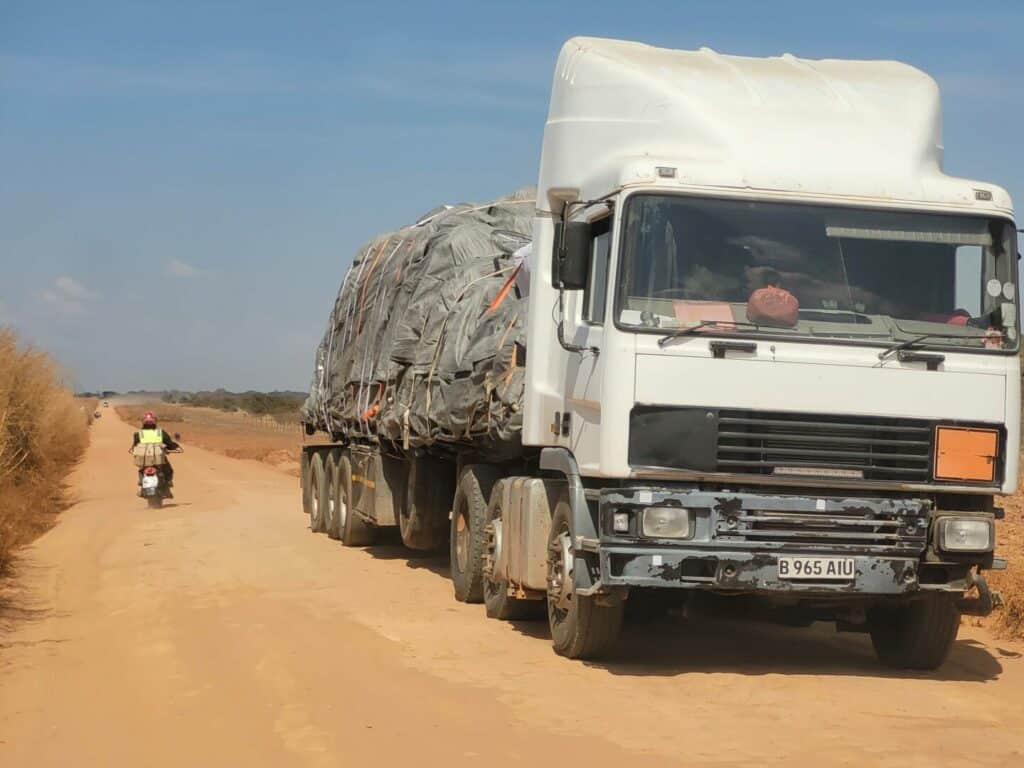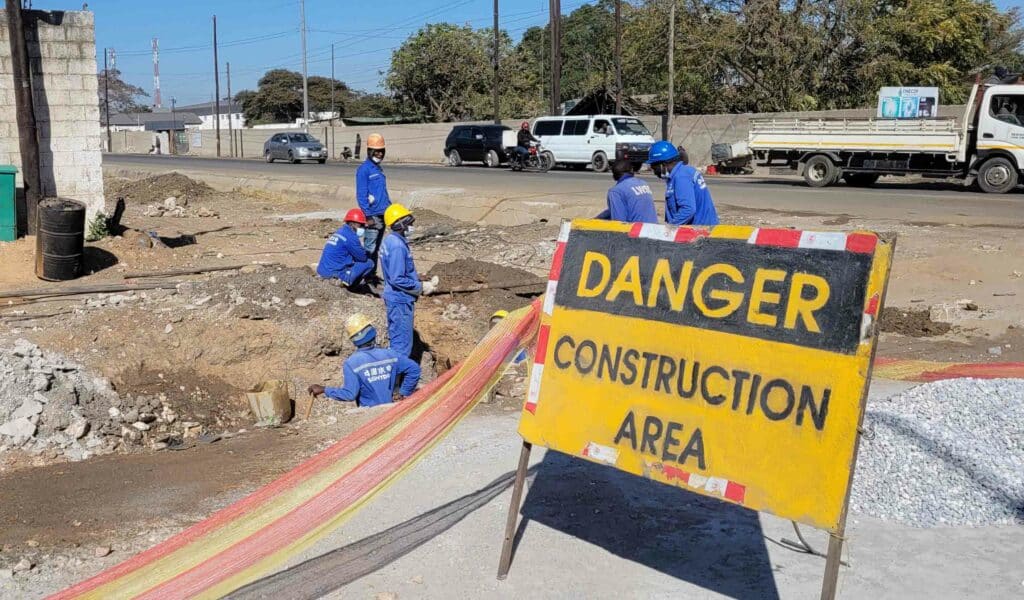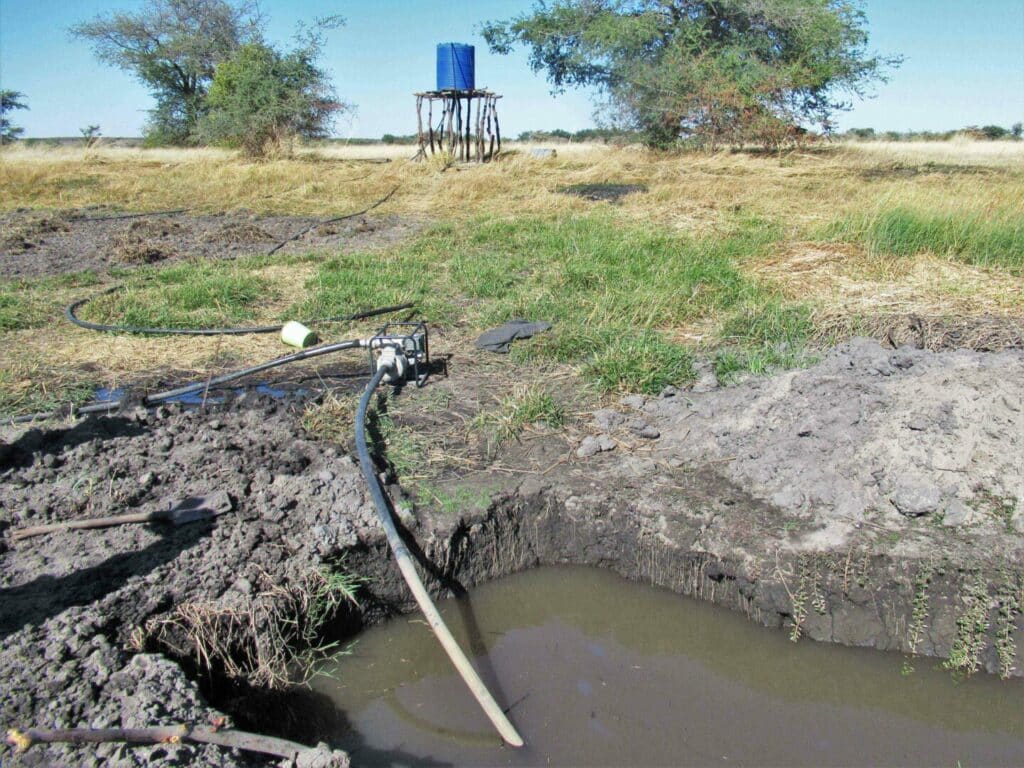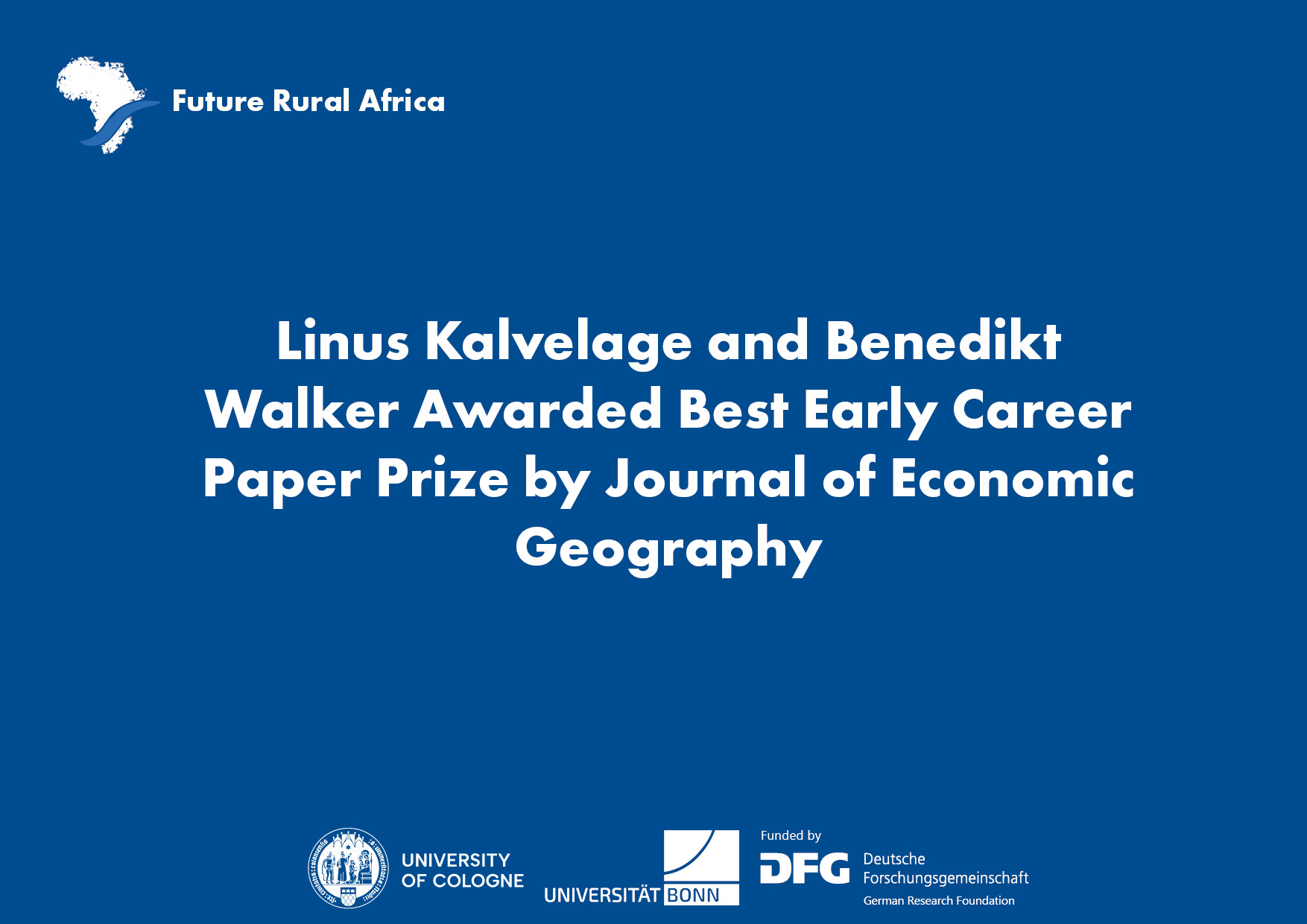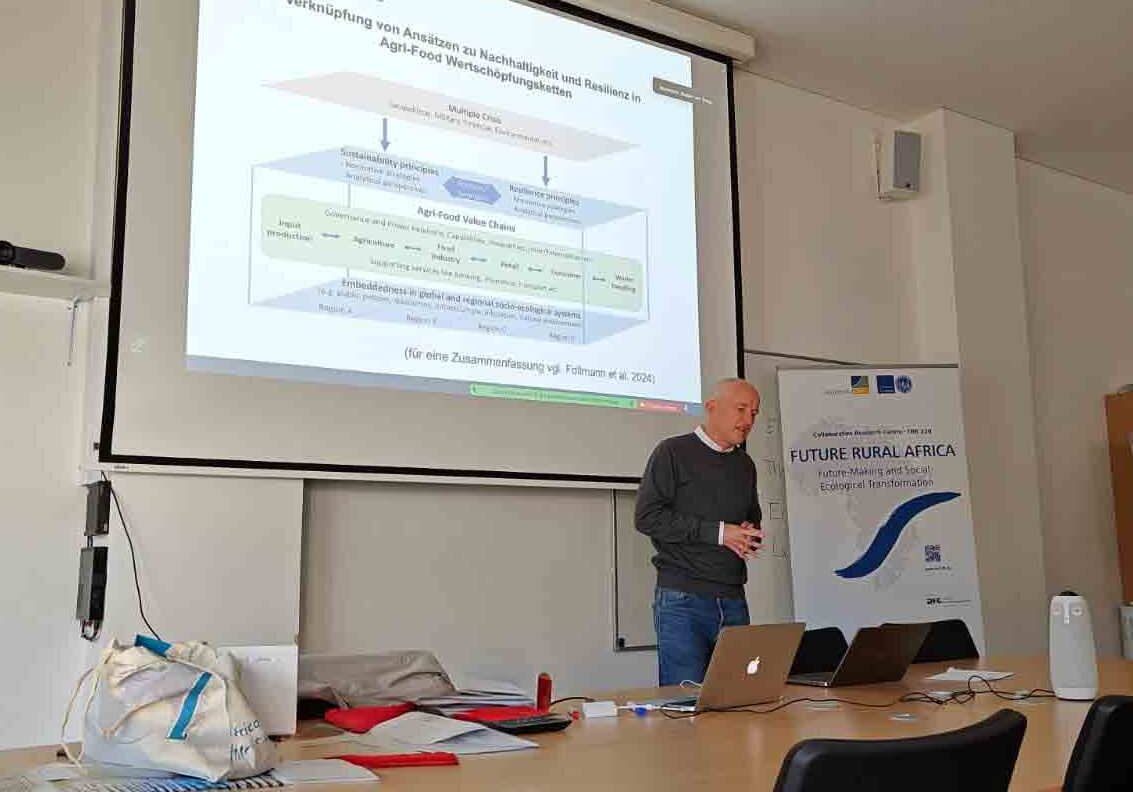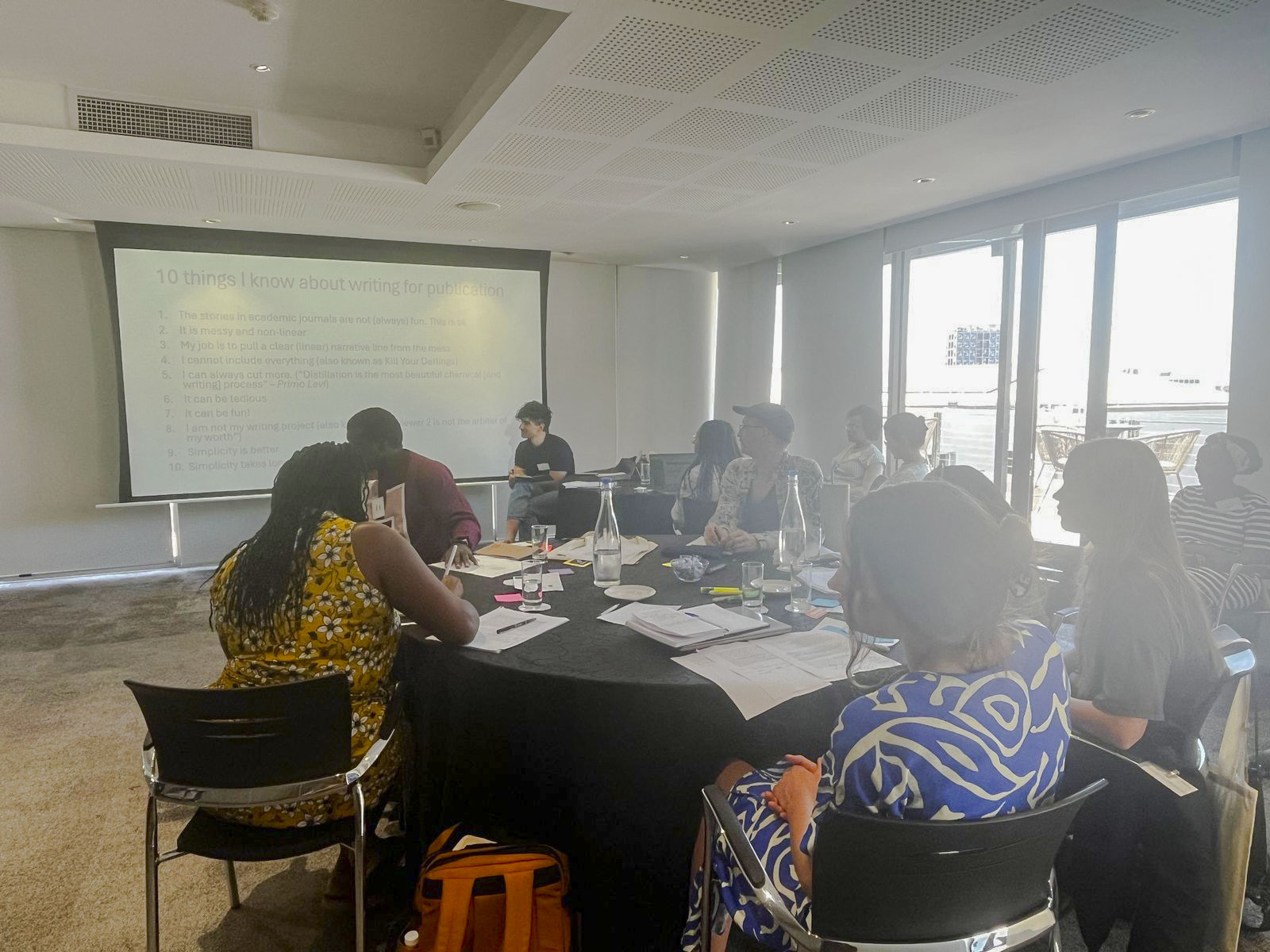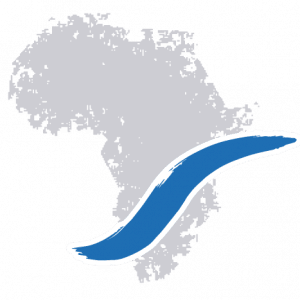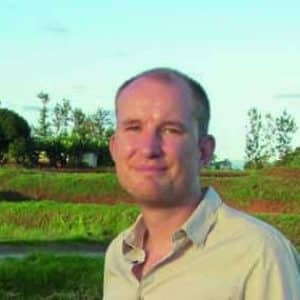CRC TRR 228 Project C01
Future in Chains
Socio-economic impacts of growth corridors
C01 Future in Chains
Vision
Explain socio-ecological transformation in cross-border growth corridors, and assess long-term developments and adaptive capacities connected to emerging (inter-)national value chains.
Project Summary
In the first phase of our project we identified spatial structures, characteristics, and dynamics of infrastructuring through the establishment of growth corridors including intended (e.g. economic growth) and unintended impacts on local businesses and livelihoods (e.g. household insecurities, polarization, and exclusion). We could explain corridor dynamics and their unintended impacts through the examination of (1) underlying visions, and (2) the governance of the corridors. Infrastructuring processes through growth corridor policies provide powerful mechanisms of future-making: by emptying the future from alternative perspectives and claiming space, as for example effected by powerful lead firms of agricultural value chains at SAGCOT or by conservationist policies of the state and NGOs in KAZA, alternative futures tend to be ignored. This explains why and how large parts of the rural population and their visions remain excluded. Indeed, corridor -making occurs rather selectively and often does not reflect the realities of the agrarian population in the rural hinterlands.
Our results indicated that in particular rural–urban and cross-border relations play a special role in value-chain and corridor activities. This observed uneven spatial manifestation and evolution of the unintended economic dynamism requires a deeper understanding of the territorial and temporal developmental effects of the growth corridors. To this end, we expand our conceptual framework and empirical focus on corridor and value-chain analysis by adding a relational perspective on cross-border territory and regional path creation.
Research Regions: Namibia, Tanzania
Problem Statement
Growth corridors are gaining attention as spatial tools for future development in Africa. As such, they are deployed and negotiated among public and private actors in global, national, and regional arenas to create transnational spaces of infrastructuring and capital circulation. However, these corridors often operate under significant power imbalances, which limit local participation and result in uneven connectivity and resource distribution. This is even more true in a context of crisis-related risks and uncertainties. Therefore, this research project examines the impact of cross-border growth corridors on the territorial organisation of value chains and evaluates the degree to which local stakeholders can react to challenges, participate in and benefit from these developments, ultimately creating more equitable and sustainable futures.
Key Questions
- How do cross-border growth corridors affect the territorial configuration of value chains?
- How do these territorial configurations impact the evolution of existing and emerging value chains?
- To what extent can local value-chain actors appropriate growth-corridor dynamics and turn these into desirable futures?
Methodology
- Expert Interviews
- Joint regional stakeholder workshops
- Analysis of CRC household survey data
- Focus-group discussions
- Multi-temporal satellite-imagery-based and thematic mapping of research regions
- Multi-temporal value chain mapping and analysis
- Path tracing
- Public Discourse analysis
Key Findings from Phase II
Structural challenges and colonial legacies have hindered the economic benefits of the Southern Agricultural Growth Corridor of Tanzania (SAGCOT) and the Walvis Bay-Ndola-Lubumbashi Development Corridor (WBNLDC). Global and regional crises, including economic instability, geopolitical conflicts, and climate extremes, further exacerbate these limitations. In SAGCOT, local actors engage differently across value chains—for example, while Chinese markets are crucial for avocado farmers, soybean producers see them as optional. More broadly, African agriculture is continuously shaped by negotiations among farmers, governments, businesses, and international organisations, where old systems and new opportunities influence future development. In the WBNLDC, our research revealed asymmetric growth across Namibia, Botswana, and Zimbabwe, with growth varying depending on the level of interplay between the nation state and local value chain actors. In Victoria Falls, colonial-era land dispossession, restrictive market practices, and exclusionary
Key Findings from Phase I
In the first phase of our project (2018-2021) we identified spatial structures, characteristics and dynamics of growth corridors including intended (e.g. economic growth) and unintended impacts on local businesses and livelihoods (e.g. household insecurities, exclusion, diversification). We could explain these impacts and dynamics partly through underlying visions and the governance of the corridors and their relations to global and regional value chains, national policies and donor activities. These included different practices of future making (i.e. emptying the future and claiming space) by powerful lead firms, national and international programmes and policies (e.g. KAZA), but also unintended developments from below. Here our results indicated that urban-rural and cross-border relations play a special role in value chain and corridor activities.
Relation to the CRC
Through participation of international donors and investors, growth corridor projects provide apt illustrations of cross-scalar linkages in future making. Multi-stakeholder governance increases in complexity as local businesses and foreign firms contribute different visions of the future which may entail both imperatives of intensification (e.g. commercial farming) and conservation (e.g. conservation measures). This project provides explanations for socio-ecological transformations resulting from the integration of rural areas into global value chains.
Publications
Aring, M., Reichardt, O., Katjizeu, E., Luyanda, B., and Hulke, C. 2021. ‘Collective Capacity to Aspire? Aspirations and livelihood strategies in the Zambezi region, Namibia’, The European Journal of Development research. DOI
Biber-Freudenberger, L., Bogner, C., Bareth, G., Bollig, M., Dannenberg, P., Revilla Diez, J., Greiner, C., Mtweve, P. J., Klagge, B., Kramm, T., Müller-Mahn, D., Moseti, V., Nyamari, N., Ochuodho, D. O., Kuntashula, E., Theodory, T., Thorn, J., Börner, J. 2025. Impacts of road development in sub-Saharan Africa: A call for holistic perspectives in research and policy. iScience, Volume 28, Issue 2. DOI
Breul, M., Hulke, C., and Kalvelage, L. 2021. ‘Path formation and reformation: studying the variegated consequences of path creation for regional development’, Economic Geography. DOI
Dannenberg, P. 2024. Krise als Zukunftschance: Ist die Landflucht der Jugend in Afrika zu stoppen? Welternährung, Das Fachjournal der Welthungerhilfe, 02/24, Full Text
Dannenberg, P., Hartmann, G. 2019. ‘Stairway to Heaven oder Highway to Hell? Neue Entwicklungskorridore am Beispiel SAGCOT in Tansania’ 2019 (11) pp.42-46.
Dannenberg, P., Luxen, V., Tups, G., 2022. What makes Tanzanian smallholder farmers satisfied with their life? It’s not farming! Journal of the Geographic Society of Berlin 153, No.4. Full Text
Dannenberg, P., Revilla Diez, J. and Schiller, D. 2018. ‘Spaces for integration or a divide? New-generation growth corridors and their integration in global value chains in the Global South’, Zeitschrift für Wirtschaftsgeographie, 62(2), pp. 135-151.DOI
Dannenberg, P., Tups, G., 2023. Supplying lead firms, intangible assets and power in global value chains: Explaining governance in the fertilizer chain. Global Networks. A Journal of Transnational Affairs. Full Text
Follmann, A., Dannenberg, P., Baur, N., Braun, B., Walther, G., Bernzen, A., Börner, J. Brüntrup, M., Franz, M., Götz, L., Hornidge, A-K., Hulke, C., Jamali Jaghdani, T., Krishnan, A., Kulke, E., Labucay, I., Nduru, G. M., Neise, T., Priyadarshini, P., Revilla Diez, J., Rütt, J., Scheller, C., Spengler, T., Sulle, E. 2024. Conceptualizing Sustainability and Resilience in Value Chains in Times of Multiple Crises—Notes on Agri-Food Chains. DIE ERDE
Gargallo, E. and Kalvelage, L. 2020. ‘Integrating Social-Ecological Systems and Global Production Networks: Local Effects of Trophy Hunting in Namibian Conservancies’, Development Southern Africa. DOI
Hartmann, G., Mwaka, I. and Dannenberg, P. 2021. ‘Large investments, small farmers: A financialisation perspective on value chains in a development corridor’, Development Southern Africa, (38(1), pp. 122-138. DOI
Hartmann, G., Nduru, G. and Dannenberg, P. 2020. ‘Digital connectivity at the upstream end of value chains: A dynamic perspective on smartphone adoption amongst horticultural smallholders in Kenya’, Competition & Change, 25(2), pp. 167-189. DOI
Hulke, C., Kairu, J. and Revilla Diez, J. 2020. ‘Global Visions, Local Realities – How Conservation Shapes Agricultural Value Chains in Zambezi Region, Namibia’, Development Southern Africa. DOI
Hulke, C., Kalvelage, L., Kairu, J., Revilla Diez, J., Rutina, L. 2022. ‘Navigating through the storm: conservancies as local institutions for regional resilience in Zambezi, Namibia‘, Cambridge Journal of Regions, Economy and Society. Full text
Klagge, B., Walker, B., Kalvelage, L., Greiner, C. 2025. Governance of future-making: Green hydrogen in Namibia and South Africa. Geoforum, 161. DOI
Kalvelage, L., Bollig, M., Grawert, E., Hulke, C., Meyer, M., Mkutu, K., Müller-Koné, M., Revilla Diez, J. 2021. ‘Territorialising Conservation: Community-based Approaches in Kenya and Namibia’, Conservation and Society. Access Link
Kalvelage, L., Lüder, L. 2023. Regional resilience and social-ecological systems: the impact of COVID-19 on community conservation in Namibia, African Geographical Review, DOI
Kalvelage, L., Revilla Diez, J., Bollig, M. 2023. Valuing Nature in Global Production Networks: Hunting Tourism and the Weight of History in Zambezi, Namibia. Annals of the American Association of Geographers. DOI
Kalvelage, L., Revilla Diez, J. and Bollig, M. 2020. ‘How much remains? Local value capture from tourism in Zambezi, Namibia’, Tourism Geographies. DOI
Kalvelage, L., Revilla Diez, J.. and Bollig, M. 2020. ‘Do tar roads bring tourism? Growth corridor policy and tourism development in the Zambezi region, Namibia’, The European Journal of Development research. DOI
Kalvelage, L., Tups, G. 2024. Friendshoring in global production networks: state-orchestrated coupling amid geopolitical uncertainty” ZFW – Advances in Economic Geography, 2024. DOI
Kalvelage, L., Walker, B. 2024. Strategic coupling beyond borders: Germany’s extraterritorial agency in Namibia’s green hydrogen industry, Journal of Economic Geography, 2024;, lbae036, DOI
Kiesel, C., Dannenberg, P., Hulke, C., Kairu, J., Revilla Diez, J., Sandhage-Hofmann, A. 2022. ‘An argument for place-based policies: The importance of local agro-economic, political and environmental conditions for agricultural policies exemplified by the Zambezi region, Namibia’, Environmental Science & Policy, vol. 129, pp. 137-149 DOI
Lawhon, M., Follmann, A., Braun, B., Cornea, N., Greiner, C., Guma, P., Karpouzoglou, T., Revilla Diez, J., Schindler, S., Schramm, S., Sielker, F., Tups, G., Vij, S., Dannenberg, P. 2023. Making Heterogeneous Infrastructure Futures in and Beyond the Global South, Futures, 2023,103270, DOI
Mausch. K., Harris. D., Revilla Diez, J. 2021. Rural Aspirations: Reflections for development planning, design and localized effects. The European Journal of Development Reseach. Link
Meyer, M., Hulke, C., Kamwi, J., Kolem, H., Börner, J. 2022. ‘Spatially heterogeneous effects of collective action on environmental dependence in Namibia’s Zambezi region‘, World Development, Vol. 159, 106042. DOI
Mlilo, M., Bollig, M., Revilla Diez, J. 2024. Coloniality of power and the imaginaries of tourism in Victoria Falls, Geoforum, Volume 156, 2024. DOI
Mlilo, M., Bollig, M., Revilla Diez, J. 2024. Nation-state influence on tourism path creation in Southern Africa. Regional Studies, 1–16. DOI
Müller-Mahn, D., Dannenberg, P. and Klagge, B. 2019. ‘Das ländliche Afrika im Umbruch: Entwicklungskorridore und die Transformation des Agrarsektors’, Geographische Rundschau. 2019 (11) pp. 10-16.
Nakanyete, N. F., Matengu, K. K., Revilla Diez, J. 2025. Community enterprises for fair partnerships in non-timber forest product value chains? The case of San communities in northern Namibia. Geoforum, 160, DOI
Nakanyete, N. F., Matengu, K. K., Revilla Diez, J. 2023. Rich resources from poor communities: An analysis of Namibia’s access and benefit-sharing legislation. Environmental Development, S. 100943. DOI
Nangolo, J. T., Hütt, C., Bareth, G., Revilla Diez, J. 2025. Roads to development? A comparison of development corridors vs regional roads in the Zambezi Region, Namibia. Journal of Maps, 21(1), 2462302. DOI
Nghitevelekwa, R., Lendelvo, S., Nakanyete, F. N., Likuwa, K., Matengu, K., & Mushavanga, D. 2024. “We have that connection, we have love; we take wildlife as gifts from our ancestors”: relations between antelopes and Khwe in Namibia’s Bwabwata National Park. Anthropology Southern Africa, 47(2), 183–196. DOI
Parshotam, A. and Revilla Diez, J. 2019. ‘Economic Growth Corridors Through a Value-Chain Lens: The Case of the Southern Agricultural Growth Corridor in Tanzania’, in Scholvin, S., Black, A., Revilla Diez, J. & Turok, I. (eds.) Value Chains in Sub-Saharan Africa. Heidelberg: Springer, pp. 61-77.
Revilla Diez, J., Hulke, C., Kalvelage, L. 2023. Chapter 3 – Value Chains and Global Production Networks: Conceptual considerations and economic development in the ‘wild’. In: Ed: Currey, J.: Conservation, Markets, And The Environment In Southern And Eastern Africa Commodifying The ‘Wild’, edited by J. Currey. DOI
Steffens, V., Hartmann, G. and Dannenberg, P. 2019. ‘Eine neue Generation von Wachstumskorridoren als Entwicklungsmotor in Afrika?’, Standort, 43, pp. 2-8.DOI
Tups. G., Dannenberg, P. 2021. ‘Emptying the Future, Claiming Space: The Southern Agricultural Growth Corridor of Tanzania as a Spatial Imaginary for Strategic Coupling Processes. Geoforum, Volume 123, pp. 23-35. DOI
Tups, G., Matejcek, A. 2025. Planning smart, working hard: unveiling the ‘hidden’ labour behind digital connectivity in Tanzanian agriculture. Territory, Politics, Governance, 1–20. DOI
Tups, G., Mbunda, R., Ndunguru, M. & Dannenberg, P. 2024. Multiple Krisen und Globale Produktionsnetzwerke: Neue Sojapartnerschaften zwischen China und Tansania im Rahmen der Belt and Road Initiative. Standort 48, 2–9. DOI
Tups, G., Sakala, E. N., Dannenberg, P. 2023. Hope and path development in ‘left-behind’ places – a Southern perspective, Regional Studies. Full Text
Vehrs, H.P., Kalvelage, L., Nghitevelekwa, R. 2022. ‘The Power of Dissonance: Inconsistent Relations Between Travelling Ideas And Local Realities in Community Conservation in Namibia’s Zambezi Region‘, Conservation & Society, [Epub ahead of print], Link to preprint

